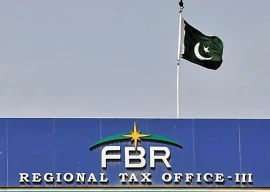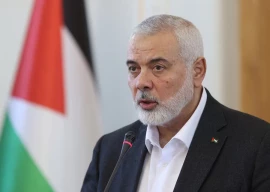
In a major breakthrough that could have a far reaching impact on the Middle East and beyond, Saudi Arabia and Iran agreed to restore their diplomatic ties. Facilitated by China, the two powerful countries of the Muslim world will reopen their embassies in two months in each other’s countries and revive the 2001 security pact as well as the 1998 agreement to promote trade and other ties.
The two countries severed diplomatic relations in 2016 after a series of incidents starting from the Arab Spring in 2011. From Yemen to Syria and from Iraq to Lebanon, the Saudi-Iran rivalry was on display. Pakistan too is at the receiving end of the tussle between them.
What does this breakthrough mean and who are the beneficiaries? What is significant is that China has emerged as a mediator. The Saudi-Iran rapprochement will benefit Beijing the most. As China increases its economic footprint, it needs uninterrupted supply of oil and gas from Gulf countries. But that is not possible if the region is divided. The easing of tension between Saudi Arabia and Iran will pave the way for China to deepen its links with the Gulf region.
The deal suits Iran, which is virtually a pariah. With China on its side and Saudi Arabia mending fences, Iran can deal with the US and Israel more effectively. For Saudi Arabia, the rapprochement is a strategic shift. Having remained a long-term US ally, Riyadh has shown inclination to join China in the multipolar world. The shift was necessitated by a series of events in recent years that made Saudi Arabia realise that the US would no longer come to its rescue in case Iran threatens its sovereignty. With revival of diplomatic ties mediated by China, Saudi Arabia believes that Tehran will not pose a direct threat to its interests.
The Saudi-Iran rivalry for decades shaped the Middle East politics. The ice breaking between these two countries can lead to the political solution to conflicts in Yemen, Syria, Iraq and Lebanon. The development, however, is seen as a major setback for the US and its ally Israel. The agreement has not only brought Iran and Saudi Arabia closer but allowed China to make inroads in the Middle East politics. The US and Israel wanted Saudi Arabia to be on their side in the evolving situation.
For Pakistan, the Iran-Saudi agreement is a major positive development. For decades, Pakistan had to bear the brunt of their rivalry. Pakistan always struggled to maintain a delicate balance in its ties with the two countries. In 2015 Pakistan’s refusal to join the Saudi coalition in the Yemen war angered Riyadh. Pakistan opted to stay neutral since it did not want to get embroiled in the Saudi-Iran tussle. The row between Saudi Arabia and Iran also hampered Pakistan’s push to go ahead with multibillion dollar projects. For example, the Iran-Pakistan pipeline has been in limbo for years not just because of fears of US economic sanctions but also because of Saudi opposition. Similarly, Saudi Arabia wants to set up an oil refinery in Gwadar but due to possible backlash from Iran, the project so far has not hit the ground. On top of it, Saudi-Iran normalisation of ties means easing of sectarian tensions in Pakistan.
Not just that Pakistan, Saudi Arabia and Iran can be part of the China-led block. Pakistan has publically maintained it doesn’t believe in bloc politics. It has always emphasised having relations with all powerful countries. But with the changing scenario, it is likely the US would want to woo Pakistan. It is, therefore, no surprise that there has been visible push by the US in recent months to reset ties with Pakistan. Over the last few weeks, Pakistan and the US held a series of talks on defence, counterterrorism and trade. Next week, the two countries are set to have dialogue on energy cooperation and climate change. Pakistan can take advantage of the evolving situation but for that it has to first put its house in order.
Published in The Express Tribune, March 13th, 2023.
Like Opinion & Editorial on Facebook, follow @ETOpEd on Twitter to receive all updates on all our daily pieces.














COMMENTS (1)
Comments are moderated and generally will be posted if they are on-topic and not abusive.
For more information, please see our Comments FAQ